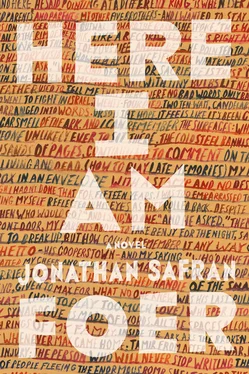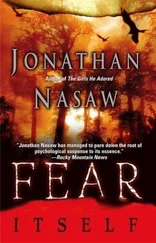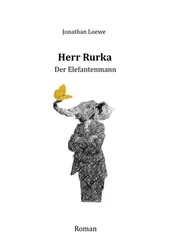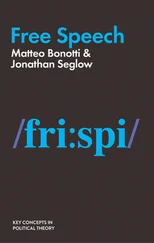He handed them to me. I must have spent five full minutes searching for what had to be there.
“What happens if the trick goes wrong?” I asked, not yet ready to return the rings.
“How would it go wrong?”
“Someone takes the wrong card, or lies to you, or the deck falls.”
“I never perform a trick,” he said. “I perform a process. There’s no outcome I need.”
I told that to Julia in bed that night: “There’s no outcome he needs.”
“Sounds Eastern.”
“Definitely not Eastern European.”
“No.”
I turned off the bedside light.
“That first trick. Or process . Max really said your card?”
“I didn’t actually pick one.”
“No?”
“I wanted to, but I just couldn’t bring myself to.”
“So why did you cry?”
“Because Max still could.”
HOW TO PLAY NO ONE
The night I came back from Islip, I went straight to the kids’ rooms. It was three in the morning. Benjy was contorted into one of those almost inconceivably bizarre sleeping-child positions: his tush way up in the air, his legs rigid, the weight of his body driving his cheek into the pillow. He had sweated through his sheets and was snoring like a tiny human animal. I reached out my hand, but before I’d even touched him, his eyes sprang open: “I wasn’t asleep.”
“It’s OK,” I said, brushing his damp hair with my hand. “Close your eyes.”
“I was awake.”
“You were doing sleep-breathing.”
“You’re home.”
“I am. I didn’t go.”
He smiled. His eyes closed too slowly for it to be voluntary, and he said, “Tell me.”
“Tell you what?”
He opened his eyes, saw that I was still there, smiled once again, and said, “I don’t know. Just tell me.”
“I came home.”
He closed his eyes and asked, “Did you win the war?”
“You’re asleep.”
He opened his eyes and said, “I’m only thinking about how you were in a war.”
“I didn’t go.”
“Oh. That’s good.” He closed his eyes and said, “I know what it is.”
“What what is?”
“The n-word.”
“You do?”
“I googled it.”
“Ah. OK.”
He opened his eyes. And though he didn’t smile this time, I could hear, in his full exhalation, that he was again relieved by my permanence.
“I’ll never use it,” he said. “Never.”
“Good night, love.”
“I’m not asleep.”
“You’re falling asleep.”
His eyes closed. I kissed him. He smiled.
“Is it a g like gun ?” he asked. “Or like ginger ?”
“What’s that?”
“The n-word. I don’t know how you say it.”
“But you’re never going to say it.”
“But I still want to know how.”
“Why?”
“You aren’t going to go away again, are you?”
“No,” I said, because I didn’t know what to say — to my child, or to myself.
HOW TO PLAY LOVE
Love is not a positive emotion. It is not a blessing, and it is not a curse. It is a blessing that is a curse, and it is also not that. LOVE OF ONE’S CHILDREN is not LOVE OF CHILDREN, is not LOVE OF ONE’S SPOUSE, is not LOVE OF ONE’S PARENTS, is not LOVE OF ONE’S EXTENDED FAMILY, is not LOVE OF THE IDEA OF FAMILY. LOVE OF JUDAISM is not LOVE OF JEWISHNESS, is not LOVE OF ISRAEL, is not LOVE OF GOD. LOVE OF WORK is not LOVE OF SELF. Not even LOVE OF SELF is LOVE OF SELF. The place where LOVE OF NATION, LOVE OF HOMELAND, and LOVE OF HOME meet is nowhere. LOVE OF DOGS is to LOVE OF ONE’S CHILD’S SLEEPING BODY as LOVE OF DOGS is to LOVE OF ONE’S DOG. LOVE OF THE PAST has as much in common with LOVE OF THE FUTURE as LOVE OF LOVE has with LOVE OF SADNESS — which is to say, everything. But then, LOVE OF SAYING EVERYTHING makes one untrustworthy.
Without love, you die. With love, you also die. Not all deaths are equal.
HOW TO PLAY ANGER
“You are my enemy!”
HOW TO PLAY FEAR OF DEATH
“Unfair! Unfair! Unfair!”
HOW TO PLAY THE INTERSECTION OF LOVE, ANGER, AND FEAR OF DEATH
At my annual cleaning, the dentist spent an unusual amount of time looking in my mouth — not at my teeth, but deeper — his instruments of pain slowly tarnishing, untouched, on the tray. He asked if I’d been having a hard time swallowing.
“Why do you ask?”
“Just curious.”
“I suppose a bit.”
“For how long?”
“A couple of months?”
“Did you ever mention it to your doctor?”
He referred me to an oncologist at Johns Hopkins.
I was surprised by my instinct to call Julia. We hardly ever spoke anymore: she had long since remarried; the kids were masters of their own logistics, being adults; and as one gets older, there is less and less news to share, until the final piece, which is delivered by someone else. The dialogue in the show is virtually identical to what actually transpired, with one significant exception: in life, I didn’t cry. I screamed: “Unfair! Unfair! Unfair!”
JACOB
It’s me.
JULIA
I recognize your voice.
JACOB
It’s been a long time.
JULIA
And your number comes up on my phone.
JACOB
As Jacob?
JULIA
As opposed to what?
JACOB
Listen—
JULIA
Is everything OK?
JACOB
I was at the dentist this morning—
JULIA
But I didn’t make an appointment for you.
JACOB
I’ve become remarkably capable.
JULIA
Necessity is the ex-wife of capability.
JACOB
He saw a lump in my throat.
Julia starts crying. Each is surprised by her reaction to nothing (yet), and it goes on for longer than either would have imagined or thought bearable.
JULIA
You’re dying?
JACOB
The dentist , Julia.
JULIA
You’re telling me he saw a lump, and you’re calling me.
JACOB
Both a lump and a phone call can be benign, you know.
JULIA
So now what?
JACOB
I have an appointment with an oncologist at Hopkins.
JULIA
Tell me everything.
JACOB
You know everything I know.
JULIA
Have you had any other symptoms? Stiffness in your neck? Difficulty swallowing?
JACOB
Did you go to med school since we last spoke?
JULIA
I’m googling while we talk.
JACOB
Yes, I’ve had stiffness in my neck. And yes, I’ve had difficulty swallowing. Now will you please give me your undivided attention?
JULIA
Is Lauren being supportive?
JACOB
You’d have to ask the man she’s presently dating.
JULIA
I’m sorry to hear that.
JACOB
And you’re the first person I’ve told.
JULIA
Do the boys know?
JACOB
I told you, you’re the first—
JULIA
Right.
JACOB
I’m sorry to have laid this on you. I know I haven’t been your responsibility for a long time.
JULIA
You were never my responsibility.
(beat)
And you still are my responsibility.
JACOB
I won’t tell the kids anything until there’s something real to tell them.
JULIA
Good. That’s good.
(beat)
How are you holding up?
JACOB
I’m fine. He’s just a dentist.
JULIA
It’s OK to be scared.
JACOB
If he were so smart, he’d be a dermatologist.
JULIA
Have you cried?
JACOB
On November 18, 1985, when Lawrence Taylor ended Joe Theismann’s career.
JULIA
Enough , Jacob.
JACOB
He’s just a dentist.
JULIA
You know, I don’t think I’ve ever seen you cry. Other than tears of happiness when the boys were born. Is that possible?
Читать дальше












